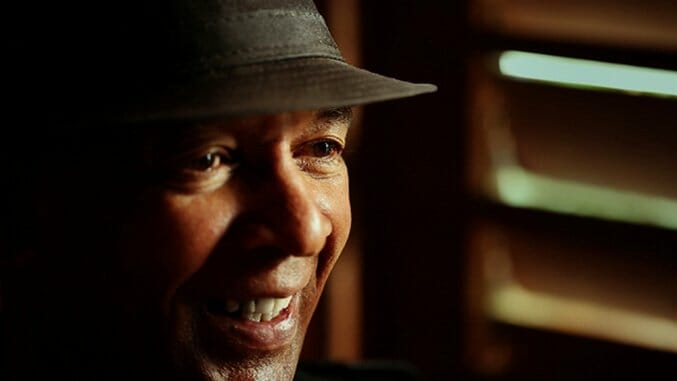That’s a shame, since director Jamie Kastner and his crew have sought out a story brimming with potential—one that touches on issues of race, class, corporate puppeteering of politics, radical politics in the 1960s, railroading in the legal system, police torture and the Golden Age of Airplane Hijacking. At its center is Ishmael Muslim Ali (formerly Ishmael LaBeet), a U.S. fugitive who’s lived in Cuba for nearly 40 years. In 1972, he was one of five men convicted of committing the Fountain Valley massacre in St. Croix, in the U.S. Virgin Islands. The case was drenched in the racial tension on the islands brought by the Hess oil company opening a refinery there but importing white workers to run it. The five defendants were all Afro-Caribbean men, while seven of the eight murder victims were white. Twelve years later, LaBeet used a smuggled gun to hijack a plane on which he was being transferred, redirecting the flight to Cuba, where he’s remained to this day.
The doc skips back and forth in its timeline, mainly between three periods—the events around the Fountain Valley massacre, the hijacking itself and Ali’s current life—and the mucking around with chronology is where the movie will completely lose a good deal of viewers. If there’s a logic to how the story jumps from time to time, it’s not readily identifiable: Kastner seemingly sees this as a technique which automatically imbues artistic legitimacy, but making something harder to follow than necessary doesn’t add complexity to a film.
Perhaps The Skyjacker’s Tale does this to cover for its failure to satisfactorily explore Ali’s case. While it cracks open a few revelations, like a police officer blithely admitting to torturing LaBeet and the other suspects, it doesn’t so much pick apart the possibility of LaBeet’s guilt or innocence as much as it merely summarizes the story and its controversies. It’s not as if the movie needed to definitively stake a claim as to the true perpetrators of the massacre—plenty of crime documentaries have found thematic richness in probing the ambiguities in seemingly straightforward situations—but Kastner doesn’t do much to dig beneath the surface, content to simply hear out a few interviews and sprinkle in some reenactment. This laziness is best exemplified by the film’s irritatingly omnipresent generic doo-wop score, or by how it tosses off an explanation for how LaBeet got the gun onto the plane which may or may not even be sincere. Despite the intriguing subject matter, this documentary can’t stay in the air.
Director: Jamie Kastner
Writer: Jamie Kastner
Starring: Ishmael Muslim Ali
Release date: June 30, 2017
